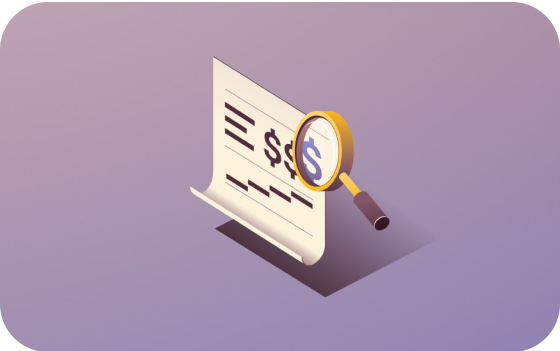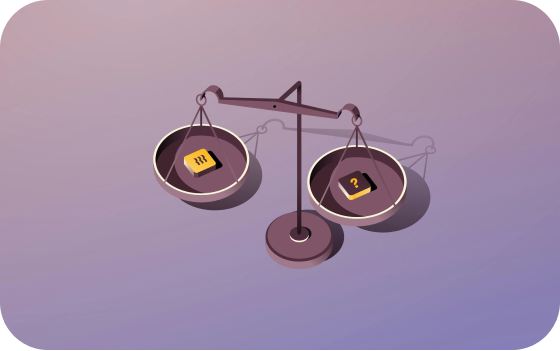How to start a business in Washington [Updated 2025]
Dans cet article
With a thriving economy and a wide range of incentives for entrepreneurs, Washington is consistently ranked as one of the best states to start a new business. Home to top companies like Amazon, Microsoft, and Starbucks, the Evergreen State also hosts over 670,000 small business owners that employ 1.4 million people—nearly half of all Washington employees.
If you’re planning to join Washington’s dynamic business community, you’ll need to follow some key steps, from refining your business concept and creating a business plan to staying compliant with state licensing and filing requirements.
In this step-by-step guide, we'll help you navigate the intricacies of launching your business in Washington to ensure your venture is compliant and geared for growth.
1. Name your business
So you’ve come up with a great business idea. But what about the name?
Follow these steps to create and register your business name:
Check whether your chosen business name is available on the Washington State Department of Revenue (DOR) business lookup.
Search for federally registered names on the US Patent and Trademark Office to make sure your business name isn’t already trademarked.
Ensure it contains the necessary words or abbreviations. If you’re registering a corporation or LLC, for example, you need to include terms like “Corporation,” “Limited Liability Company” or their abbreviations.
Apply for a business license online via the state Business Licensing Service (BLS).
If applicable, register your trade name for $5 and pay the business license processing fee. Here’s when you need to register a trade name, or a “doing business as” (DBA) name, in Washington state:
You’re a sole proprietor or partnership using a name that isn’t your full legal name or one of your partners’ names.
Your Washington corporation, limited partnership (LP), or limited liability company (LLC) operates under a name other than the name registered with the Office of the Secretary of State.
You’re using any business name that’s not your full legal name.
If you also want to trademark your business name so that others can’t use it, you can file with the U.S. Patent and Trademark Office, or with the Washington Secretary of State if your business activities will only stay within the state.
Finally, consider registering a web domain name and social media accounts under your business name as soon as possible so that no one else takes the name.
2. Explore your funding options
Whether you’re self-funding your startup or seeking support from lenders and private investors, you’ll want to explore Washington state’s business grants and small business loans. Here’s a quick overview of your options:
Washington State Department of Commerce funding options: Several grants and funding programs are available to help small and growing businesses buy new equipment, expand or construct facilities, and develop products.
Federal loan programs: The Small Business Administration (SBA) offers loan programs of up to $5 million with low rates, including the SBA 7(a), SBA 504, and SBA Express programs.
Local and regional funding: The Washington Small Business Development Center (SBDC) can advise on local business loan options at no to low cost.
3. Decide on your business structure
You can operate your business under different structure types. Each type comes with pros and cons—the best option for you depends on your unique needs and goals.
These are the four most common business structures you can set up in Washington state:
Business type | What is it? | Pros and cons |
|---|---|---|
Sole proprietorship | Unincorporated business owned by a single individual | ✔ The simplest way to start a business, with few legal requirements. ✔ Flexible option that allows you to easily transition to another structure down the line. ✘ You’re personally liable for all taxes, debts, and lawsuits. |
Limited liability company (LLC) | Has a single owner or is operated by two or more people through a special written agreement | ✔ Business owners’ personal assets are protected from liability. ✔ Easy to establish, and it gives your business credibility for securing loans and attracting investors. ✘ You may have to pay a city’s business & occupation taxes on top of the state requirements. ✘ More formal requirements compared to sole proprietorships, like operating agreements and annual reporting. |
General partnership | Where two or more people are jointly and severally liable, and profits are taxed as their personal income | ✔ Each partner deducts their business losses on their own tax return (known as “pass-through” tax treatment). ✔ Less expensive to set up and fewer legal requirements than corporations. ✘ Partners have unlimited liability for debts and taxes, which can affect the business’s attractiveness to investors. |
Corporation | A legal entity separate from the business owners that has certain rights, privileges, and liabilities beyond those of an individual | ✔ Strongest protection to business owners from personal liability. ✔ You can raise funds through the sale of stock. ✔ Corporations in Washington aren’t double taxed since the state doesn’t collect corporate taxes. But you do need to pay a B&O tax. ✘ Requires more extensive record-keeping, reporting, and operational processes. |
Other less common structures in Washington state include associations, non-profits, limited partnerships (LPs), and limited liability partnerships (LLPs).
4. Register your business in Washington
You don’t need to register your sole proprietorship business with the Washington Secretary of State. But for every other type of business structure, you do need to register, submit your formation documents, and pay a filing fee, as outlined below.
Business type | How to register | Costs |
|---|---|---|
Corporation | File articles of incorporation with the Corporations and Charities FIling System (CCFS) either online or by mail. | $180 |
Limited liability company (LLC) | Submit your certificate of formation to CCFS. | $200 |
Limited partnership (LP) | Submit your certificate of limited partnership to CCFS. | $180 |
Limited liability partnership (LLP) | Submit your certificate of LLP to CCFS. | $180 |
You can find all forms and links to register on the Washington Secretary of State’s website.
5. Decide on a registered agent
If you’re registering any type of business entity in Washington (excluding sole proprietorships), you need to appoint a registered agent. This person or business is authorized to accept all legal documents on behalf of the business, such as tax information, annual reports, and other legal notices.
You can be your own registered agent, assign a member of your business to the role, or hire a professional registered agent, which typically costs between $50 and $300 per year. Whoever you assign for the role must have a physical address in Washington and be available at that address during business hours.
6. Apply for an Employer Identification Number
Getting an Employer Identification Number (EIN) is a must for businesses across the country. An EIN is like a Social Security number for companies: It’s a federal tax ID number that you need for tax purposes, to open a bank account, get a business credit card, pay employees, and apply for loans.
It’s quick and free to get an EIN by applying online through the IRS website.
7. Get up to speed with Business Tax Credits
Washington is one of the few states that doesn’t have a corporate or personal income tax. However, the state does have a business & occupation (B&O) tax, which is measured on the value of products, gross proceeds of sales, or gross income of the business.
Your business might be entitled to B&O tax credits, including:
Washington offers over 50 tax incentive programs, so you may qualify for a different type of tax credit depending on your business activity and industry.
You can also take advantage of federal tax incentives, including:
Work Opportunity Tax Credit (WOTC): Tax credit available to employers hiring individuals from certain target groups who have faced significant barriers to employment.
Disabled Access Credit: Offers a non-repayable credit of as much as $5,000 to small businesses that spend money to make their establishments more accessible to people with disabilities.
8. Stay on top of filing requirements and taxes
To ensure your business remains in good standing with the state of Washington, you need to stay on top of filing requirements and tax obligations. These responsibilities vary depending on your business structure—here’s a breakdown of the filing requirements for different entity types:
Corporations and LLCs:
File an initial report with the Secretary of State within 120 days of starting your company. This counts as your first annual report, and you must file an annual report each year.
While you don’t have to pay income tax in Washington, your required business & operations (B&O) tax rate varies by classification.
Partnerships:
Limited and general partnerships are considered pass-through entities for tax purposes; the business’s profits and losses pass directly into the partners’ personal income.
If you have ownership interests in other partnerships or LLCs, you need to report these to the IRS.
Limited partnerships are subject to an annual fee, but general partnerships don’t have to pay this. Check the Washington Department of Revenue's website for more details on partnership taxation and fees.
And if you’re in the retail industry, keep in mind Washington also imposes a 6.5% retail sales tax.
9. Find a payroll solution
When you're ready to hire employees in Washington state, there's a lot you need to consider, from correctly classifying your workers to complying with overtime regulations. Plus, Washington’s minimum wage of $16.66 per hour is higher than the federal rate.
To ensure your employees and contractors get paid on time, consider using payroll software. A solution like Rippling can save you from manual payroll work and help you stay compliant with overtime laws. Rippling's Time & Attendance feature automatically tracks your team's hours, and it can even give you a heads-up when someone's about to hit that overtime threshold. Rippling will do all the heavy lifting, calculating net pay and taxes in seconds.
Rippling also has your back when you're hiring globally:
Pay all your workers in a single pay run, no matter where they are in the world.
Include hourly and salaried employees, as well as contractors, in payroll.
Manage everything in one place—from your people to your systems and data.
10. Support and scale your growing business with Rippling
A human resource information system (HRIS) is a must for growing businesses—especially if you plan on expanding globally. You’ll need a versatile software solution to simplify HR tasks, from recruiting and onboarding to payroll management and benefits administration.
By using an HRIS, you’ll avoid unnecessary headaches when scaling your business globally. Rippling is an all-in-one solution to run your global workforce:
Hire, pay, and manage your people—whether they’re in Seattle, Spokane, or across the globe.
Stay on top of local, state, and federal compliance standards.
Bring all your employee benefits—including health insurance, 401(k) plans, and commuter perks—into a single system.
Keep your recruiting data up to date, from open positions to new hires, and eliminate all busy work.
Have a single source of truth for HR analytics, policies, and everything else you need to keep your workforce thriving in Washington and beyond.
FAQs about setting up a business in Washington
Do I need a business license in Washington?
Yes, almost all businesses in Washington need to submit a state business license application. Check what steps to take based on your business type on the DOR website.
When applying for your business license, you can also apply for a unified business identifier (UBI) number. Sometimes called a tax registration number, a business registration number, or a business license number, a UBI is a nine-digit number that registers you with several state agencies and allows you to do business in Washington state.
Do I need a business bank account when launching a business in Washington?
While you may not be legally required to open a business account, it’s highly recommended to do so—whether you operate a corporation or sole proprietorship. Separating your business and personal finances helps you simplify tax reporting, protect your personal assets, and maintain clear financial records.
Do I need to get business insurance?
If you have employees, you must have workers’ compensation insurance, which provides wage replacement and medical benefits to workers injured on the job.
Even if you aren’t legally required to get insurance, having liability protection is a good idea to help cover any costs should unexpected events arise. Professional liability insurance can also protect your business if someone claims you delivered substandard work or failed to complete a project.
What are Washington state payroll taxes?
In addition to the payroll taxes required by the federal government, Washington businesses must also handle these payroll-related taxes and obligations:
State Unemployment Insurance (SUI)
Paid Family and Medical Leave (PFML)
Employer Administration Fund (EAF)
Washington Cares Fund
Clause de non-responsabilité
Rippling et ses filiales ne fournissent pas de conseils fiscaux, comptables ni juridiques. Ce document a été préparé à titre d’information uniquement ; il n’est pas destiné à fournir des conseils fiscaux, comptables ni juridiques, et ne doit pas être utilisé comme tel. Vous devez consulter vos propres conseillers fiscaux, comptables et juridiques avant de vous engager dans une quelconque activité ou transaction connexe.
Hubs
Author
Kelly Duval
Originaire de Montréal, Kelly est une auteure et rédactrice indépendante. Établie à Helsinki, en Finlande, elle crée des contenus attrayants pour les entreprises SaaS B2B, abordant des sujets tels que le futur du travail, la gestion des effectifs mondiaux et la formation et le développement.
Voir Rippling en action
Faites davantage d’économies, automatisez les tâches fastidieuses et prenez de meilleures décisions en gérant les RH, l’IT et les finances en un seul endroit.












































































